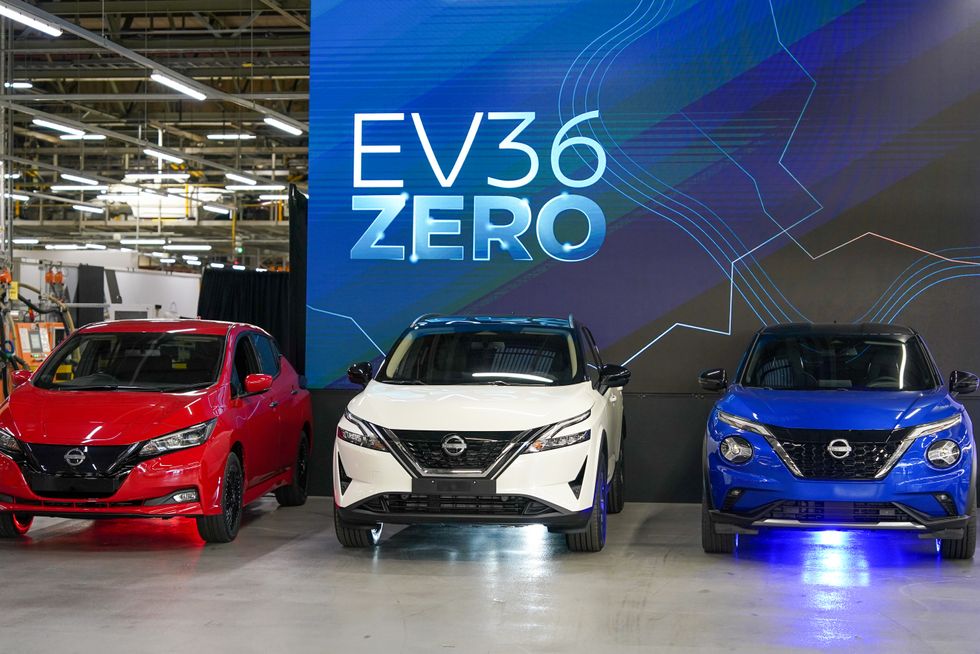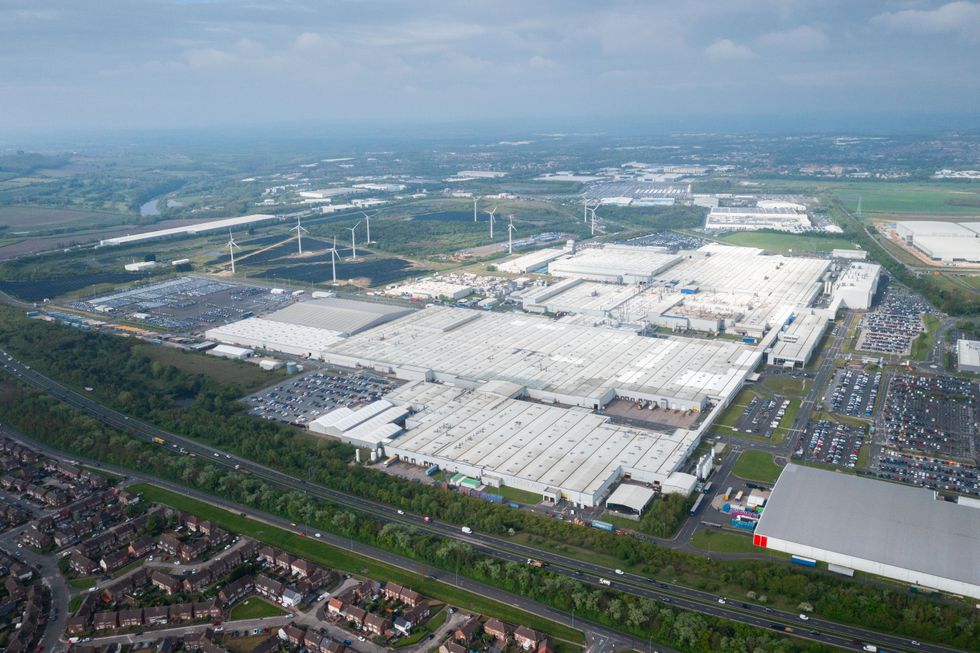WATCH: Rishi Sunak on Nissan's £2billion investment in its Sunderland factory
GB NEWS
The popular brand warned that inaction could lead to 'thousands of jobs and billions of pounds in investment' being lost
Don't Miss
Most Read
Trending on GB News
Nissan has issued an urgent call for the UK Government to revise the Zero Emission Vehicle (ZEV) mandate rules, warning that manufacturers face significant penalties due to slower-than-expected electric vehicle sales.
The Japanese automaker, which operates Britain's largest car manufacturing plant in Sunderland, argues that outdated targets could force manufacturers to pay substantial fines or purchase credits from EV-only brands that don't manufacture in the UK.
The move comes as consumer demand for electric vehicles has failed to meet projected growth rates, putting pressure on car manufacturers to meet ambitious Government targets.
This situation risks undermining UK automotive manufacturing and could threaten thousands of jobs and billions in investment, Nissan stated.
Do you have a story you'd like to share? Get in touch by emailingmotoring@gbnews.uk

Nissan warned the Zero Emission Vehicle mandate could devastate manufacturers
PA
According to the Society of Motor Manufacturers and Traders (SMMT), electric vehicle sales are projected to reach just 18.5 per cent of the total market this year.
This falls significantly short of the ZEV mandate's 22 per cent target for 2024, with requirements set to increase further to 28 per cent in 2025.
Targets will continue to rise in the coming years, with brands required to have 80 per cent of sales come from zero emission vehicles by 2030 and 100 per cent by 2035.
Manufacturers have already attempted to boost sales through discounting measures, but consumer demand has remained below expectations.
Missing these targets could result in manufacturers facing substantial penalties worth £15,000 per polluting vehicle over the threshold unless they purchase credits from EV-only brands.
Nissan warned that since many EV-only manufacturers do not produce vehicles in the UK, British automotive companies would effectively be subsidising electric vehicle sectors in other countries.
In response to these challenges, Nissan has proposed specific changes to the ZEV Mandate, including increased flexibility in borrowing credits from future years in the short term.
The manufacturer also wants a two-year monitoring period for 2024 and 2025, replacing potential fines that could devastate the industry.
Guillaume Cartier, Chairperson for the Nissan Africa, Middle East, India, Europe and Oceania (AMIEO) region, said: "Nissan has consistently supported the aims of the UK’s ZEV mandate and have been working with Governments and partners towards a fully electric future since the first Nissan LEAF arrived in 2010.
"The mandate risks undermining the business case for manufacturing cars in the UK, and the viability of thousands of jobs and billions of pounds in investment.
"We now need to see urgent action from the Government by the end of the year to avoid a potentially irreversible impact on the UK automotive sector."
Cartier added that it was committed to working with the Government and industry partners to achieve goals, adding that there was an "urgent need" to protect the sector.
LATEST DEVELOPMENTS:
- DVLA slammed for 'lack of progress' to help motorists after major update - 'Doesn't go far enough'
- Major British car brand ditches electric vehicle target in favour of hybrids and 'range-extended' models
- Motorway traffic chaos: M62 blocked as icy roads cause 'a number of collisions' - 'Please slow down!'

NISSAN
Nissan's commitment to UK manufacturing is substantial, with over 7,000 employees across its Sunderland plant, along with design and R&D facilities in Paddington and Cranfield.
The manufacturer contributes more than £2billion annually to the UK economy through wages, UK-built parts and services.
Nissan has already announced plans for three new EVs to be produced in Britain as part of its EV36Zero initiative including investments in battery production powered by renewable energy.








